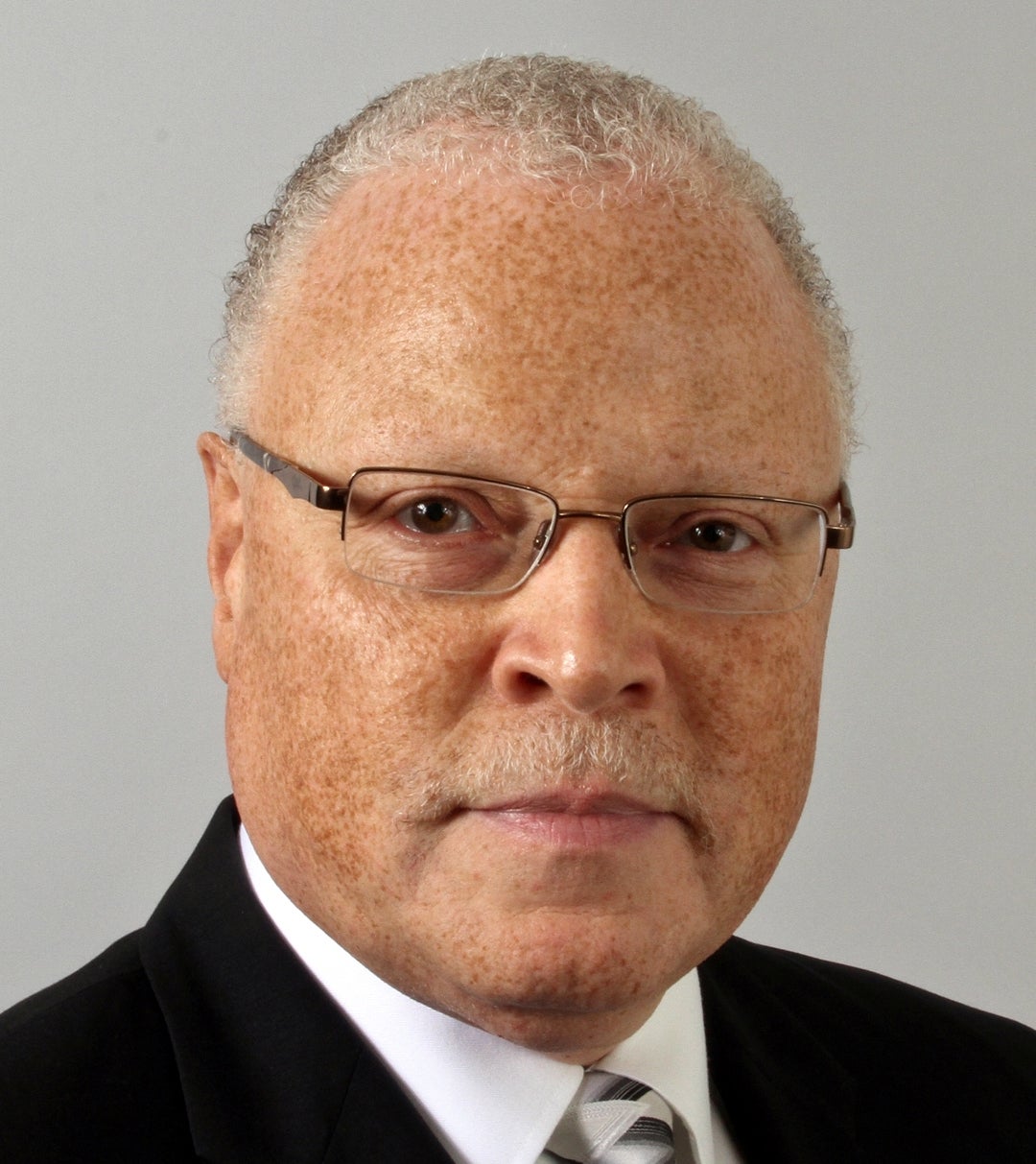In a talk at Harvard Law School, labor leader Lee Saunders said unions must adapt to face contemporary challenges. Saunders delivered the remarks on Jan. 28 as part of the Jerry Wurf Memorial Forum at the six-week Harvard Trade Union Program hosted by HLS’s Labor and Worklife Program.
Since 2012, Saunders has served as president of the American Federation of State, County & Municipal Employers (AFSCME). In introductory remarks, Boston mayor and former labor organizer Martin Walsh praised Saunders, the first African American president of AFSCME, for developing a new generation of leaders by advancing programs to foster diversity and increase member participation. “I believe and I’ve said many times, this is exactly the direction the labor movement needs to take if we are to remain a relevant force in the lives of the American working class,” Walsh said.
Walsh—who still belongs to Laborers Local 223 and carries his union book in his pocket—also expressed concerns about the “combination” of a “decline in the middle class in America” and a “decline in union membership.”
Saunders began his lecture, entitled “The Value of Labor: Transforming Unions to Meet the Challenges of Our Times,” by saying long-term efforts to undermine unions have left union membership “stagnant.” He described “a renewed focus on internal organizing” as “what we had to do” and “what we must continue to do.”
Unions need to acknowledge that their members and working families can’t all be activists because they are “stretched to the wall trying to make ends meet,” Saunders said. “We had to stop talking. We had to start listening.”
Describing unions as a “pathway to the middle class” for “people of color,” Saunders shared his own experiences growing up African American in Cleveland in the 1950s and 60s. He credited the bus drivers union, of which his father was a member, with providing healthcare for his family and allowing him to go to school.
Saunders condemned state “right-to-work” laws, which prohibit union organization, as part of a tradition of white supremacist opposition to civil rights. He also criticized Friedrichs v. California Teachers Association, a Supreme Court case argued last January 11 about whether non-union members should share the cost of union negotiations and representation. “If you go to dinner, you chip in, even if you don’t like the restaurant that was selected, that your friends chose,” he said. “But if you eat the food—you chip in.”
“I don’t underestimate or trivialize the legal, political, or legislative challenges before us—I know that they are huge; make no mistake about it,” Saunders said. “But I will not wring my hands…if we are ready to abandon the tactics that don’t work and experiment with and embrace the tactics that do work.”
“If we’re willing to do that,” Saunders said, “collectively we will rediscover the value of labor, the value and importance of our movement, not only for our members within the labor movement but for working families all over the country.”
“That’s our charge. That’s our responsibility. That is what we must do and we will do it because I have hope, you have hope, and in this time, people are sick and tired of being sick and tired, and you see people rising up.”
